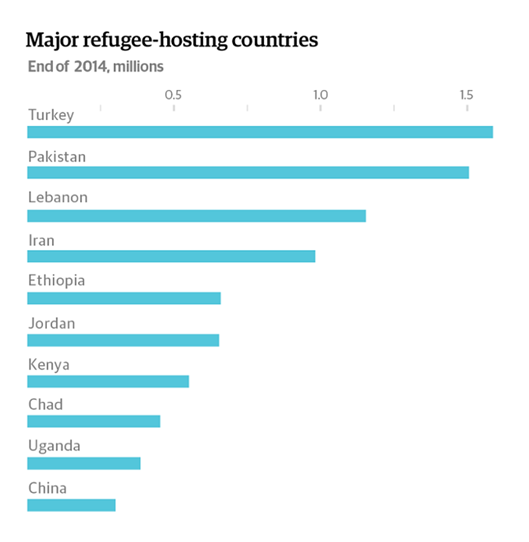Misfortunes never come single
 Comparisons are useful to pinpoint your place in the stream of events. These days, it’s often comparisons between two evils. You try to think about which problem is worse, and prioritize accordingly. After President Recep Tayyip Erdoğan’s Moscow visit, here is my new comparison: Which one is worse for Turkey, becoming the biggest refugee-hosting country or seeing a united front of support around the Democratic Union Party (PYD), the Syrian Kurdish organization fighting the Islamic State of Iraq and the Levant (ISIL)?
Comparisons are useful to pinpoint your place in the stream of events. These days, it’s often comparisons between two evils. You try to think about which problem is worse, and prioritize accordingly. After President Recep Tayyip Erdoğan’s Moscow visit, here is my new comparison: Which one is worse for Turkey, becoming the biggest refugee-hosting country or seeing a united front of support around the Democratic Union Party (PYD), the Syrian Kurdish organization fighting the Islamic State of Iraq and the Levant (ISIL)?  Let’s weigh the refugee crisis first. Pakistan was the number one refugee hosting country for a very long time. As of December 2014, things have changed. With the Syrian civil war, Turkey was hosting around 1.6 million refugees. That number has now reached 2.2 million and is rising, according to a government spokesperson. Some in Syria report that many more will be leaving the country in the months and years to come.
Let’s weigh the refugee crisis first. Pakistan was the number one refugee hosting country for a very long time. As of December 2014, things have changed. With the Syrian civil war, Turkey was hosting around 1.6 million refugees. That number has now reached 2.2 million and is rising, according to a government spokesperson. Some in Syria report that many more will be leaving the country in the months and years to come.Is Turkey to blame for the tide of refugees flowing into Europe? No. Turkey didn’t start that war, nor could it well prevent Syrians from answering the pull of Europe. “End the war and we won’t come,” a Syrian child in Hungary said to the cameras. There too, there isn’t much Turkey can do. Ankara is part of a much larger equation, and not one of the most important ones. There isn’t much it can do to end the war.
Yet in another sense, Turkey could be blamed. The country has failed to create the legal and bureaucratic mechanisms to cope with the crisis. It was conceivable that at some point in 2013 or 2014, for Turkey’s government agencies to come together and develop ways to absorb the influx of Syrians. The Directorate General of Migration Management was established under the Interior Ministry, but to no avail. It seems to me like Turkey is still trying to cope with the crisis largely through AFAD, which is the agency for natural disaster relief. Their horizons are understandably short, and their capabilities are limited to humanitarian rescue operations. They cannot be expected to know anything about integrating refugees into mainstream society. As Turkey is failing to give refugees a horizon, they tend to look for their futures elsewhere. Especially educated and skilled refugees who are used to planning their lives now consider departing for Europe.
The second misfortune is the united front around the PYD that started with the siege of the Syrian border town of Kobane. The PYD is a Syrian-Kurdish organization established in the 1990s by Abdullah Öcalan, the imprisoned leader of the outlawed Kurdistan Workers’ Party (PKK). At the time, Öcalan was a refugee in the country. In time, the PYD took over all other Syrian-Kurdish organizations, and seized the opportunity of the civil war when it arrived. It now governs cantons in Syrian Kurdistan and cooperates with Western governments against ISIL. In that sense, the PYD, and by extension the PKK, has been a chief beneficiary of the Syrian civil war.
Syria’s calamity is the root cause of both these problems for Turkey. If Syrian President Bashar al-Assad has a role to play in ending war, let him. It would solve a major administrative and a major strategic problem for Turkey. The twists and turns Ankara takes should be understood within this context, if you ask me. I still do not know which problem is worse, but if both could be solved by the same token, who cares?
*Chart Source: http://www.theguardian.com/global-development/2015/jun/18/59m-people-displaced-war-violence-persecution-says-un











